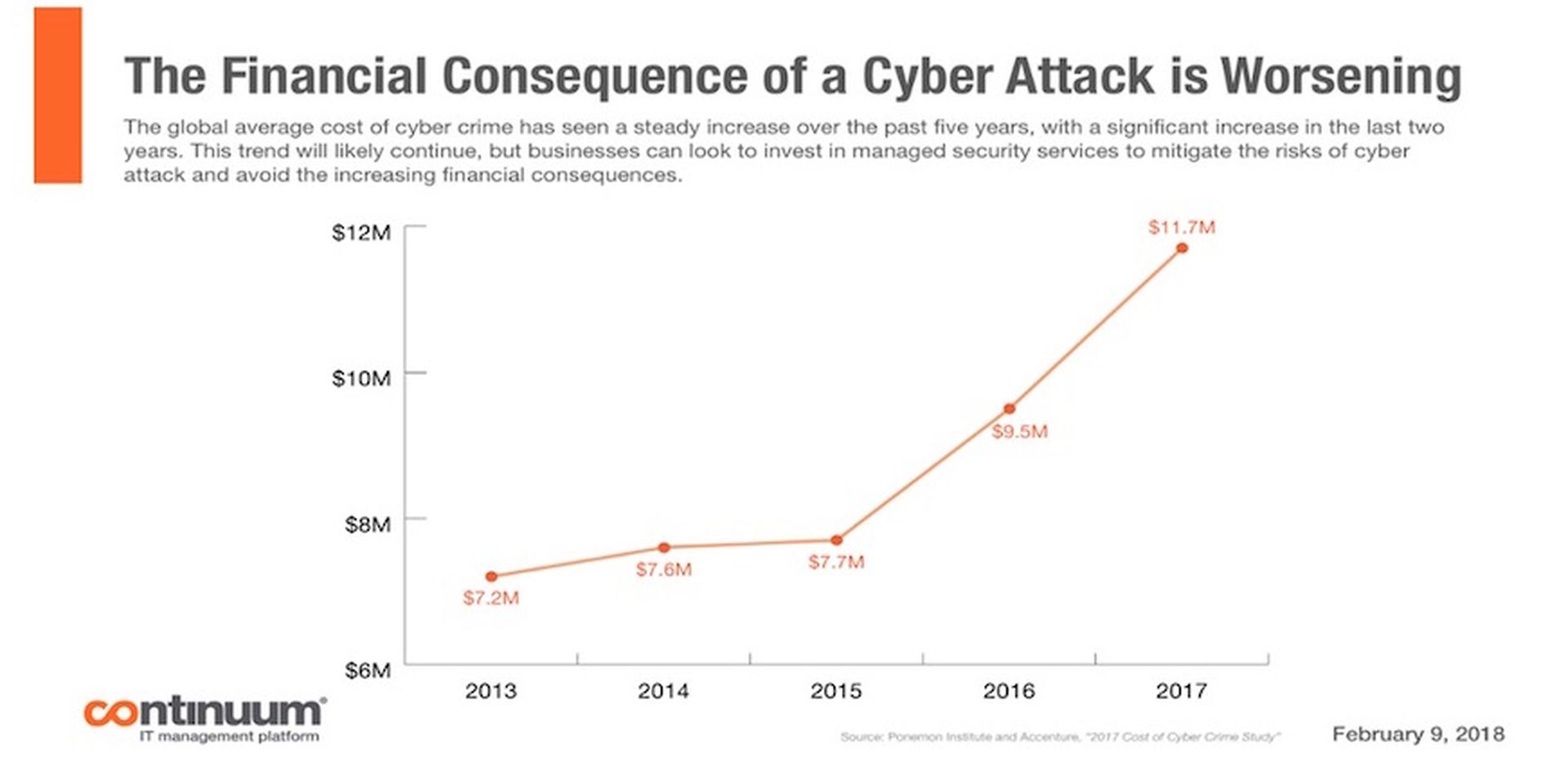
Virtually every business today fears falling victim to cyber attack. This (rational) fear stems from not only the loss of productivity or sensitive information, but also for the financial burden it puts on the business—even well after the attack has been carried out. According to a study by Ponemon Institute and Accenture, the average annual number of security breaches increased almost 30 percent in 2017. But what financial consequences could these cyber security incidents have for your clients and prospects?
A better understanding of the cost of cyber crime could help SMB business owners bridge the gap between the escalating number threat actors and the investments they should make to secure their business. If you’re looking to effectively start the security conversation with prospective clients, here are some compelling statistics that speak to the immediate need for managed security services.
See chart below:

Three Talking Points
When presenting this chart in your security sales proposal, here are some talking points to help you address common questions or objections you might hear from clients:
1. What are the costs associated with a security incident?
There are both internal and external costs associated with a cyber security incident.
Internal costs cover everything from the detection of the incident, ending with the final response to the incident. These can include any of the following; direct cost (the direct expense to deal with the incident), indirect cost (business disruption or downtime, or the amount of time, effort and other organizational resources spent on dealing with the incident) and opportunity cost (lost business opportunities as a consequence of reputation diminishment after the incident).
External costs typically include the loss of information assets, economic impact of downtime, equipment damage, revenue loss and loss of customers (churn).
2. Why should I care?
Take a moment to look at the slope of the line over the past two years. Security incidents are becoming a huge financial burden for businesses across the globe, and this trend will only continue as time goes on. This is especially concerning for small- and medium-sized businesses (SMBs), who don’t have the funds or resources necessary to bounce back after an attack. In fact, 60 percent of SMBs will go out of business within six months of a major data loss incident.
What’s more, successful breaches per company each year has risen more than 27 percent—with incidents like WannaCry and Petya affecting thousands of targets worldwide. Becoming victim to cyber attack is not a matter of if, but when. So, how confident are you that your business will survive?
3. How can managed security services help my business?
Managed security is more than just antivirus or endpoint protection—it’s the ability to monitor activity in real-time, protect against various threat vectors and, in some cases, respond to and remediate security issues that might arise. Our services help keep an eye on the health of your systems and prevent attacks from spreading in the first place, while our team provides the knowledge and skills you need to keep up with changes in the threat landscape.
And, should you ever fall victim to a successful attack, you can leverage our backup and disaster recovery (BDR) solution, which offers the capabilities to instantly roll back an archive of files to their uninfected state and immediately access those clean files. BDR is the ultimate failsafe to avoid extended downtime and its associated costs—helping your business avoid becoming another data point on this chart.
Bonus - Check This Out: Do you have a strategy in place for how you approach, educate and sell your clients and prospects on your cybersecurity solution? Watch Keys to Effectively Selling Cybersecurity Services to win more managed security services deals. Watch the webinar here.
Lily Teplow is content marketing manager at Continuum, which automates security services for MSPs. Read more Continuum blogs here.




